Fiction into Film is a series devoted to page-to-screen adaptations. The process of translating prose to the visual medium is a tricky and only intermittently successful one, but even the fumbles provide a great platform for understanding stories, and why they affect us the way they do.
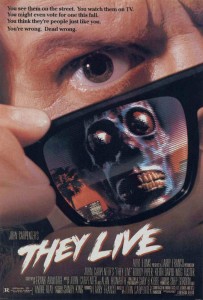 How do you ensure that your social satire is remembered and referenced for generations? You cast “Rowdy” Roddy Piper, and you let him shoot a shitload of aliens.
How do you ensure that your social satire is remembered and referenced for generations? You cast “Rowdy” Roddy Piper, and you let him shoot a shitload of aliens.
…that’s how the original draft of this Fiction into Film began. In the time between that draft and this one, we lost Piper to a heart attack, and my advice is no longer valid. Social satires will be forever poorer for it.
Casting a professional wrestler as a lead in your film is something that should probably be handled with caution. For every Andre the Giant in The Princess Bride there’s Hulk Hogan in Santa with Muscles. For every Dwayne “The Rock” Johnson there’s a Jesse “The Body” Ventura. Wrestlers act every time they step in front of a camera, but it’s a very specific kind of acting that rarely prepares them for a feature film, where they can’t rely on their gimmicks, the adrenaline of a crowd, or the suddenly-not-as-important fact that they do their own stunt work.
They Live enlists “Rowdy” Roddy Piper as its protagonist, a man who made his living as one of the WWF’s greatest heels, and you’d be forgiven for thinking of that as a misstep. He wasn’t meant to be liked. He wasn’t meant to be adored. He was a petty egotist who fought dirty and had nothing but contempt for any human being who wasn’t named “Rowdy” Roddy Piper. He was an ass — as far as his stage presence went — and the only joy he ever seemed to bring into people’s lives was when he found himself pinned at the end of a match. “Rowdy” Roddy Piper was a legend in his own mind, and a putz in everyone else’s.
And you know what? He was great at it.
This necessary approach to character development may be why Piper was able to successfully transition into They Live and other roles. Whereas somebody like Hulk Hogan fed on the goodwill he engendered with crowds (and mandatory paeans to patriotism and eating your veggies), Piper thrived on hatred. Hogan was allowed, and encouraged, to share in the joy he created. Piper was forced into a disconnect; he had to spit upon it. Hogan was a hero and an idol. Piper didn’t care if you lived or died.
In Hogan’s case, this didn’t require him to be or to become a good actor; he simply had to embody his own image. It’s why he appeared in numerous films and TV shows and cartoons and music videos, but always as some version of himself. He needed his blonde hair, his mustache, and his tear-away tanktop. He wasn’t a character; he was an idea.
Piper, by contrast, built a character. He had to understand how that worked. He had to know how to improvise in front of a crowd. He had to know how to shift and pivot around a change in somebody else’s approach, because shattering the illusion would be detrimental to his career. The moment he broke character — and, God forbid, smiled — he wouldn’t be the villain anymore. Or, at least, not as much of a villain. He couldn’t pass it off the way his contemporaries could. He wasn’t allowed to take part in the fun.
And so, consciously or not, he studied what worked and what didn’t. And even if you were not a wrestling fan — I never was — you benefited from it, from his starring turn here, in John Carpenter’s brilliant commentary on consumerist America, to his self-aware (and oddly poignant) recurring role in It’s Always Sunny in Philadelphia. He knew how to make a character work…how to inhabit somebody that wasn’t himself…and how to portray somebody who refused to admit he was as downtrodden as he really was.
They Live casts Piper as a nameless drifter (though the credits refer to him as “Nada,” the surname of his equivalent in the original short story) seeking work in a decaying America. His first lines are to an ineffectual clerk at a job center, as he explains that he was last employed in Denver, but couldn’t find work there after the banks started closing. (He’s in California now, which suggests just how difficult his search has been.)
That’s the opening to a 1988 film, and it would be just as appropriate opening one released in 2015. And just as suitable for 2015, Piper is told that there’s nothing they can do for him.
They Live is odd. It’s the sort of film that may actually play better now than it did upon release, if only because the nearly 30 years that have intervened have done nothing to soften, alleviate, or address the concerns on display. In 1988 it was a cynical, biting look at a bottomed-out America, which makes it even more painful to watch in 2015. If it was maddening then that we were there at all, how much more painful is it that we’re still there today?
Carpenter’s violent, brutal deconstruction of his own country’s willful blindness is a vision entirely his own, even if he does, technically, build the film around somebody else’s source material.
They Live is based on a 1963 short story by Ray Nelson: “Eight O’Clock in the Morning.” They share several of the same plot points (which we’ll discuss in turn), but are miles apart in terms of artistry. In fact, “Eight O’Clock in the Morning” becoming They Live is one of the most charitable processes of adaptation I’m aware of. A short, lifeless, didactic parable becomes a genre-hopping, hilarious, chilling punch to the gut. Carpenter didn’t just improve upon Nelson’s source material; he did him the favor of fleshing it out, expanding upon its shallow ideas, and — in short — making it worth experiencing.
To take a great story and turn it into a great film is a great (…ahem) thing, but aside from the obvious answer of money, it raises the question of why one would bother doing it. If something wonderful already exists in an accessible format, why recreate it?
The Live doesn’t face that problem. It takes a forgettable dash of mild sci-fi and spins it into a gritty, cynical yarn whose echoes still resonate throughout pop-culture today. Unless you visit this site (or have friends who really need to improve their taste in literature) you won’t hear “Eight O’Clock in the Morning” come up in many conversations. And yet They Live‘s flourishes are everywhere.
Those Shepard Fairey OBEY stickers you used to (and may still) see everywhere? They’re spreading the subliminal messages that Piper discovers in They Live. The X-Ray Specs from Bart vs. The Space Mutants that let you see which characters are actually aliens? Those are lifted directly from the sunglasses in They Live. And Duke Nukem’s “kick ass and chew bubblegum” line? That’s born of one of Piper’s improvisations that made it into They Live…and has since been co-opted by everything from Dazed and Confused to King of the Hill.
“Eight O’Clock in the Morning” is the insect preserved by They Live‘s amber. I’d recommend reading it not because it’s very good, but because it’s very short, and it serves as an insightful rough draft of what They Live would have been without the immense writing, acting, and editing talent behind it.
The story’s main plot is very similar to that of They Live. George Nada (the prototype for Piper’s character in the film) accidentally awakens “all the way” to the truth around him. He sees that the Earth is populated partially by Fascinators, reptilian creatures from outer space that secretly run the world. There’s little more to the story than that, and it’s impressively plagued with issues for something so short. For starters, it’s odd that the space creatures are referred to immediately as Fascinators. It’s the kind of name you can easily read into, but it smacks of cleverness for the sake of cleverness, and it makes Nelson’s intentions too clear. Since George would have no way of knowing what they’re called — and doesn’t invent the name himself — it sticks out early and oddly, and guides the reading of the story a bit too tightly.
It’s also amusing that George awakens “all the way” after a performance by a stage hypnotist. It’s a rather silly way to open what is an otherwise humorless, preachy slog, and Carpenter does well to build his film around a more universal sign of entertainment: the television.
Carpenter’s television is both master and liberator, serving a conflicted role in a conflicted film; for Carpenter, the medium is emphatically not the message…his characters are pulled in both directions by its gravity, toward slumber and toward awakening, toward slavery and toward freedom, toward ignorance and toward enlightenment.
Television is a weapon, working for whomever is holding its signal at the time. By handling television this way, They Live at times feels of a critical piece with films like Network and Videodrome, similarly dark, comic meditations on what television does to us…and what we let it do to us. I’m unaware of any films that consider the sociopsychological role of stage hypnotism to the same successful effect.
The main problem with “Eight O’Clock in the Morning” though — and the main reason I’m keen to poke a little fun at it — is how seriously it takes itself. It’s very much a cautionary parable, and it’s hard to read much of it without assuming that the final line will be something like, “Don’t you see that this story applies to you, dear reader?”
Its message is also a dangerous one. George awakens, begins murdering strangers, ties up and verbally abuses his girlfriend, and goes on a suicide mission to the local TV station to expose the truth. It’s a story that positively begs for unreliable narration, or at least some ambiguity, but we don’t get any. We are assured throughout the text that George is correct; he really is the only sane human being, and the only one capable of exposing the truth. But how does George know that?
His behavior — like the narration that describes it — is too self-assured. Consider the early moment during which George encounters a homeless man in an alley:
George picked up a brick and smashed it down on the old drunk’s head with all his strength. For a moment the image blurred, then the blue-green blood oozed out of the face and the lizard fell, twitching and writhing. After a moment it was dead. […] George dragged the body into the shadows and searched it. There was a tiny radio in its pocket and a curiously shaped knife and fork in another. The tiny radio said something in an incomprehensible language.
We aren’t meant to doubt his actions; the third-person omniscient approach with its constant reassurance that George is correct prevents us from ever doing so. But removed from the narrative and appraised only on its content, “Eight O’Clock in the Morning” should be the tale of a man going dangerously insane. There’s enough in that short paragraph above to raise more narrative red flags than the whole of Lolita, but Nelson wants us simply to buy into it.
Faces flicker into different shapes. Without a word George caves in a stranger’s skull with a brick. Hey, it turns out it was a scary lizard man only George could see. It was carrying a radio broadcasting “in an incomprehensible language.” Being that almost all of the languages on Earth are incomprehensible to anyone, anywhere, at any given time, this should have been a clue to question George’s thought process. (It’s also interesting that George is in a social position to beat a homeless man, whereas in They Live Piper is the homeless man.)
Everything about that passage should be terrifying. Nelson agrees, but he thinks we should be terrified of the lizards. A reader paying any attention would instead be terrified of George.
For both Nelson and Carpenter, the world around these characters is one thing, while appearing to be another. But Carpenter has the good sense to let others in…to let each of the characters involved verify the truth in their own way. There’s no third-person presence repeating “Keep calm…” over the horrors; there’s an ugly truth that the characters would prefer not to face…but once they know the truth, there’s no going back.
In fact, one of the greatest — and most memorable — scenes in the film unfolds between Piper and Keith David (playing Piper’s fellow laborer Frank) in a filthy alleyway. The former has a pair of sunglasses that reveals the world as it truly is, and simply wants the latter to try them on. Frank’s refusal escalates quickly to violence, which itself builds to a protracted scene of mutual, relentless brutality. Piper’s request to Frank is nothing more than to try on the glasses…it’s as simple and benign as a request can be. But the lengths — and the desperation — that we will go to in order to avoid seeing the truth is explored here in a comically literal way.
Frank has a wife and children in Detroit. He’s laboring on a construction site in California, living in a shantytown and sending all of his money home. Like Piper’s own trek from Denver to the west coast, this is further evidence of how difficult things have gotten for honest, hardworking people. There’s no laziness on display in They Live. There’s no struggling character that could possibly try harder to elevate himself or herself. There’s simply a dead end, and they’re all stuck.
There is no chance of getting ahead…but Frank has to try. He knows he won’t succeed, but that doesn’t mean he can give up, or jeopardize what little opportunity he has. Putting on the glasses may reveal the truth, but revealing the truth will mean he no longer has the comfort of his illusion. He’ll no longer be able to believe that he’ll see his family again, or that his daily sacrifice will put them in a better position to get ahead. He’ll no longer be able to hide.
So he refuses. He fights. He bludgeons and topples and beats relentlessly against what Piper is trying to show him. The first time I saw this film, I actually suspected it would end here, with our hero being beaten to death by the closest thing he has to a friend, the lonesome death of the only man who knows the truth in a world that doesn’t want to hear it.
It doesn’t end there, and I’m glad, but part of me still feels like it’s a dark enough thought to be in tune with the rest of the film’s idea of comedy.
The brutal scene between Piper and Frank is our mid-film reminder of its star’s origins: it’s a chance for “Rowdy” Roddy Piper to do some fighting. And like the WWF, it’s theatrical, over the top, and absurdly full of false victories and fake-outs. Unlike the WWF, however, there’s something at stake. And as funny as the scene is, there’s a genuine sadness that runs through it.
There are no cheering (or booing) fans. There’s no play-by-play. There’s no ring. There’s a filthy alley, broken glass, splintered two-by-fours. There’s bleeding and bruising. There’s sweat. There’s wheezing. In their own way, each of them is fighting for their vision of the world…and in both cases, it’s a vision they don’t particularly want. Piper seeks change, Frank seeks stasis. And they’re both willing to beat to oblivion one of the only people that has ever showed them kindness. These are men who have almost nothing to lose; all they have left is what they believe in, and the moment someone tries to take that from them, they’ll fight to the death to keep it.
But there’s more to Piper’s casting in this film than his ability to pull off convincing fisticuffs. He plays the central role, remember, in a film about how what we think we see isn’t really what we see. And the man was a professional wrestler.
The discovery that wrestling is staged is right up there with learning the truth about Santa Claus for many children. It’s a confusing, maybe painful, rite of passage. And Piper, like countless other men and women in that field, was directly responsible for creating the illusion.
Wrestling was a series of characters waving their arms and legs around and pretending to injure and be injured by that. There was more to it, of course, but it was stagecraft. It was illusion. You were watching at home, or in the audience, and the participants made you see something that wasn’t actually happening.
Piper himself was a creation. He’s credited by that name in They Live and his other acting roles, but he was really Roderick Toombs. He put on a show as Piper, and then put on another show either in the ring or in films. He was an illusion several layers deep, and a man famous for sustaining it with caustic aplomb.
Piper playing the role of the only man aware that there is an illusion — and to fight tooth and nail to tear that illusion down — must have been cathartic to him. He made his career by hiding the truth, and arguably peaked in that career with this portrayal of a man who would — and does — die to bring it to light. It’s the kind of stunt casting that would have worked in theory with any professional wrestler, but Piper was the right choice. In addition to being an impressive actor in his own right, he had the willingness to look less than glamorous, the ability to play against type (a serious rarity for wrestlers-turned-actors), and also had what John Carpenter called “life written all over him.”
Piper wasn’t a pretty boy. He wasn’t a hero. He wasn’t even someone you could be sure was going to accomplish whatever the hell he thought he needed to accomplish. He was a guy you’d question, but also worry about. He was a man whose motives couldn’t possibly be pure, but who you wanted to trust anyway. He was a physical brute who seemed as helpless as a pussy cat. He was a casting choice that both raised and addressed what should have been the central question of Nelson’s story: just what the fuck is this guy doing?
The difference between Carpenter’s keen understanding of the material and Nelson’s dull bungling of it is best illustrated by a significant scene that both versions of the story share. In They Live it’s Piper taking refuge in the home of Cable 54 employee Holly Thompson (played just cagey enough by Meg Foster), while in “Eight O’Clock in the Morning” it’s Nada taking refuge in the home of his girlfriend Lil.
On the surface, both scenes fulfill the same need: they give the protagonist a safe space and a confidant, and we get a brief recap of the story in the main character’s own words. But Nelson’s execution is muddied, and upsetting. We’ll look at his first, and we’ll do it in a way that the story itself does not: we’ll look at it through the eyes of Lil.
Remember, only George Nada knows of the Fascinators. Only he can see them, and nobody else has any evidence (or suspicion) that they exist. When we read “Eight O’Clock in the Morning,” we know he is correct in his actions…but what of the other characters in the story? What do they see? Well, let’s break free from the narration, and just list George’s actions in this scene.
Lil doesn’t know what her boyfriend knows, so all she sees is his behavior. Ready?
He shows up unannounced, in a panic. He steps into her apartment and switches her television off. He demands that she “wake up,” which she doesn’t understand, so he slaps her across the face. He then murders a man who comes to the apartment to see what the fuss is about. He does this by stabbing him in the neck with a knife. He drags the bleeding corpse into her living room, and she recognizes the man as her neighbor, Mr. Coney. George commands that she not scream, and that she tell him where Mr. Coney lived. Then he ties her up and gags her, and leaves to murder Mr. Coney’s family. (A slight cheat here, as she doesn’t see this happen, but based on what she’s seen already she can’t expect that he disappears to help them weed the garden.) When he returns he takes her car keys and leaves her bound and gagged in the room with the body of her dead friend.
And we’re supposed to like this guy, and view his actions as heroic. See now why the story screams for an unreliable narrator? As it stands, “Eight O’Clock in the Morning” unrolls a litany of horror underscored by a confusing reassurance that it’s nothing to worry about. You’d think it was some kind of attempt at thematic resonance (the subliminal messages of the Fascinators serve a similar purpose), but at best it’s a symptom of trying to say too much in too short a space, and at worst it’s very poor writing.
It’s problematic to say the least, which is why it’s good that Carpenter reconfigures it substantially. For starters, Holly is not Piper’s girlfriend…she’s a woman he apologetically carjacks when there’s no other way to escape the creatures that pursue him. From Holly’s perspective, much of this must be unfolding as it does for Lil. In her case, however, it’s a stranger. It’s not a trusted (and presumably loved) man who has suddenly become a lunatic; it’s a stranger who she immediately knows she must be careful and diplomatic with. She’s on her guard; no trust is betrayed. It’s a terrible situation, but there’s no pretending otherwise.
Carpenter’s lens allows Holly to show her discomfort in a way that Lil cannot. We see Holly on edge, and we know that Piper may be treating her in a necessary way, but certainly not in a heroic one. She gets to be a human being…and it helps (just a smidge) that Piper is actually interested in explaining to her the situation, rather than murdering her neighbors and piling the corpses around her living room.
After Piper’s equivalent raving, Holly doesn’t get bound and gagged while he steals her car, either, forgotten for the rest of the film as Lil is in the story. Instead, Holly patiently listens, and then summarizes the situation back to him: “Okay. You’re fighting the forces of evil that none of us can see without sunglasses.”
Nelson needs to reassure us that what George is doing is right. Carpenter keeps leaving room for us to suspect that what Piper is doing is wrong. Nelson wants us to believe him wholeheartedly. (One might say, obey.) Carpenter wants to keep us locked in an uncomfortable and anxious dance of moral ambiguity.
The confusion echoes through Piper’s performance, as he seems to teeter on the line between hapless putz and action hero without definitively falling into either category. His faltering, reluctant ascent to ass-kicking savior status gives the film some of its biggest laughs and memorable moments. Unlike George in the story — who takes to bashing skulls and slicing throats with disconcerting ease, and without provocation — Piper is forced into his armed rebellion.
He reveals in a corner store the fact that some of the customers have a very different appearance when he wears his sunglasses: “I take these glasses off, she looks like a regular person, doesn’t she? Put ’em back on…formaldehyde face!” This causes the creatures to swarm toward him, while relaying his physical description through their wristwatches. Almost immediately he is approached by creatures in police uniforms, and must do the unthinkable:
Shooting the cops doesn’t quite play as triumphant, and even if you manage to see it as such, it’s tinged with the knowledge that he’s even more, to put it diplomatically, fucked.
He takes two guns with him and flees into the nearest convenient building…which just happens to be a bank. The tableau thus created — the guns, the sunglasses, the American flag — is packed with heroic imagery, but Piper oozes awkward desperation. Whatever he’s stepped into, he’s not ready. He knows it. He also knows there’s no going back.
It’s here, in this very moment, that he coins the film’s most famous phrase. Unable to explain to onlookers what he’s actually doing there, how he got there, or what he could possibly do next, he haltingly declares:
I have come here to chew bubblegum and kick ass. And I’m all out of bubblegum.
It’s nonsensical, but perfect. It says everything while saying nothing. It’s a perfectly structured dash of macho action movie palaver, however it lets its own absurdity bleed through. Piper’s character is not an action star, but he’s suddenly the star of an action film. All he can do is do his best.
We get further quips like this throughout…ones that work very well in context, the decidedly clunky attempts of a man to fill his own big boots.
“Life’s a bitch. And she’s back in heat.”
“Mamma don’t like tattle tales.”
“You look like your head fell in the cheese dip back in 1957.”
“Ain’t love grand?”
But it culminates, shockingly, in an emotional scene between Piper and Frank. In a hotel room they discuss what they’ve seen, and what to do about it, but Piper seems lost in thought. Frank contributes to the conversation, but it’s unclear whether or not Piper hears much of what he says.
He shares with Frank the most backstory we ever get out of him: a single, inebriated speech about the abuse he suffered at the hand of his father. He tells the story of a time his father took out a shaving razor and attempted to saw through young Piper’s throat, “like he was sawing down a little tree.” (Presumably George in the original text would see this as a very inspirational story.) He tells Frank about how he screamed and cried for his father’s mercy, and Piper’s far from dull to the pain this many years later.
It’s all in buildup to one more macho threat, which also suggests a crucial moment of growth for Piper. While the story is about his father, he ends it with a threat to the aliens: “I got news for them. There’s gonna be hell to pay. Because I ain’t daddy’s little boy no more.”
It’s a difficult moment to pull off in a sci-fi action horror comedy, this moment of quiet, human vulnerability, but I’d actually argue that this is Piper’s strongest scene in the film. For a man who was never known for subtlety, he gives this speech incredible depth and sadness. It feels real. It feels honest. And it takes his unpracticed heroism and explains it by, suddenly, revealing depth of character.
To Nelson, triumph is a brick to the head. To Carpenter, it’s a broken man taking control, for the first time, of his destiny.
But no true 80s action hero is complete without a sexy love interest, and it’s here that poor Piper makes a bad choice.
After he forces Holly to take him home and explains the situation to her, she breaks a bottle over his head, hurls him through a plate glass window, and calls the police.
Ain’t love grand?
But Piper knows as well as we do that all romantic subplots have their hiccups, and they never end halfway through the film. Which is why he’s so happy to see her at a meeting of resistance members as They Live nears its climax. He concludes from this that she’s seen the truth…that he did his part in opening her eyes. He sees that he’s saved her, and that they can now work together to dismount the alien ruling class.
In short, he’s a bit dim. She’s a mole. And he doesn’t even second guess things when she says she assumed she’d killed him.
The creatures storm the meeting and murder almost every resistance member outright. Piper and Frank survive the onslaught, but Piper is convinced that he needs to go back for Holly, blind to the fact that she’s been directly responsible for having him nearly killed twice now.
It’s a sweet impulse completely overshadowed by its foolishness, and once they do find Holly, she wastes little time in putting her gun to Frank’s head and murdering him.
The entire end of the film is tonally chaotic, in the best imaginable way. The action, the comedy, the sci-fi, and the social satire all jostle for primacy, but it works. In “Eight O’Clock in the Morning,” George simply strolls into a TV studio, shoots everybody, and imitates the Fascinators for the viewers at home: “Wake up. Wake up. See us as we are and kill us!”
It’s an underwhelming solution compared to Carpenter’s, which sees Piper and Frank stumbling into an underground gala event, at which the aliens and their (willing) human accomplices celebrate the fall of the resistance. It’s “backstage at the show,” as one character puts it, and we get to tour it along with our heroes.
Nelson was concerned at this point mainly with wrapping up his story, but Carpenter is concerned instead with deepening it. And it’s a trick Carpenter pulls off with the return of a minor character played by George “Buck” Flower…another nameless drifter who lived in the same shantytown as our heroes. Only now, he’s found prosperity.
The two nameless drifters (Piper and Flower) meeting up at this moment, after an entire film apart, suggest parallel adventures, with each of them stumbling upon the same truths, but processing them in decidedly different ways. Whereas Piper’s character is horrified and disgusted to see that we’ve been used and manipulated by an outside force, Flower’s chooses to hitch his wagon to that force, and help them in exchange for being helped himself. “We all sell out every day,” he explains. “Might as well be on the winning team.”
Flower’s character isn’t alone. At the resistance meeting it was made very clear what the biggest threat to an uprising was: humans choosing to side with their own conquerors. “They sell out. Promotions, bank accounts, new houses, cars.” And then the six words that explain everything: “We’ll do anything to be rich.”
What’s really impressive is how Carpenter spins this into both an obviously negative thing, and also the reason Piper and Frank get a foothold at all. Humans want money and status, but they also want to show those things off…and when Flower’s character takes them on a tour “backstage,” he’s doing so in order to impress them. That’s the only reason they get within shooting distance of humanity’s salvation.
Before the fireworks at the TV station — and the shorting out of the device that hides the true identity of the aliens — Flower’s character ducks out. He vanishes from the action through the escape functionality built into his wristwatch, and it’s possible to conclude that he survives. It’s important, I think, because he’s not necessarily a bad guy. Like Piper and Frank, Flower had nothing. He was in an identical situation, and he was doing anything he could think to do in order to survive. Piper hiked from Denver to California for the barest hope of a job. Frank sent every dollar he made back to a family he’d never see again. Flower exchanged his pride for a life of financial security…and you can’t really blame a guy who hasn’t had a roof over his head or a good meal as long as he can remember.
We can identify with Flower, which is the scariest thing. Our conquerors don’t have to come with bullets and billy clubs. They just need to give us what we want. We’ll stop fighting the moment we think being conquered is a good deal. And I’m glad that Flower (potentially) survives the film; it keeps the morality nice and muddy, where it needs to be.
But, ultimately, Piper destroys the signal. He, Holly, and Frank all die, and the true faces of the aliens are revealed to the world at large. “Eight O’Clock in the Morning” sees George dying at this moment as well: “George did not live to see the victory that finally came. He died of a heart attack at exactly eight o’clock.” We’re then assured that he had universal success and we can all go out for frosty chocolate milkshakes.
Piper’s death is one we can only hope has the same result. We don’t know what happens after the aliens are revealed. They could be defeated…or they could make the same offers that won over people like Flower. The illusion may be shattered, but unlike in Nelson’s story, the power of the conqueror is rooted more deeply than that. A new day will dawn, but won’t we sell out on that day, too? Won’t most of us still want to be on the winning team?
I originally wanted to cover They Live for this series because I think it’s an incredibly inventive adaptation. It doesn’t so much re-tell a story as it does inject life into an idea that didn’t initially reach its own potential.
The unexpected and unfortunate death of “Rowdy” Roddy Piper is going to make this seem like at least a little bit of a tribute, and that’s okay, but if you haven’t seen They Live, don’t conclude that the only reason to watch it is to pay homage to the man.
It’s an important, influential, intermittently brilliant piece of brutal social commentary. And it’s a damned good movie as well.
It’s too late to cast “Rowdy” Roddy Piper in your movie and let him shoot a shitload of aliens, but don’t worry. Somebody already did it for you.
They Live
(1963, Ray Nelson [as “Eight O’Clock in the Morning”]; 1988, John Carpenter)
Book or film? Film
Worth reading the story? It’s the kind of story that loses nothing by simply having it summarized to you so…no.
Worth watching the film? Oh come on. Just look at this and tell me it’s not worth watching.
Is it the best possible adaptation? Even better than the story deserved. It’s an adaptation that isn’t worried about remaining true to the source material, and a perfect example of why that’s not just okay; it’s often beneficial all around.
Is it of merit in its own right? Definitely. It’s a deceptively clever bit of pulp that does a great job of threading its own world through the one we know. It takes a painfully wimpy story and a painfully macho genre and blends them both into a work of art.
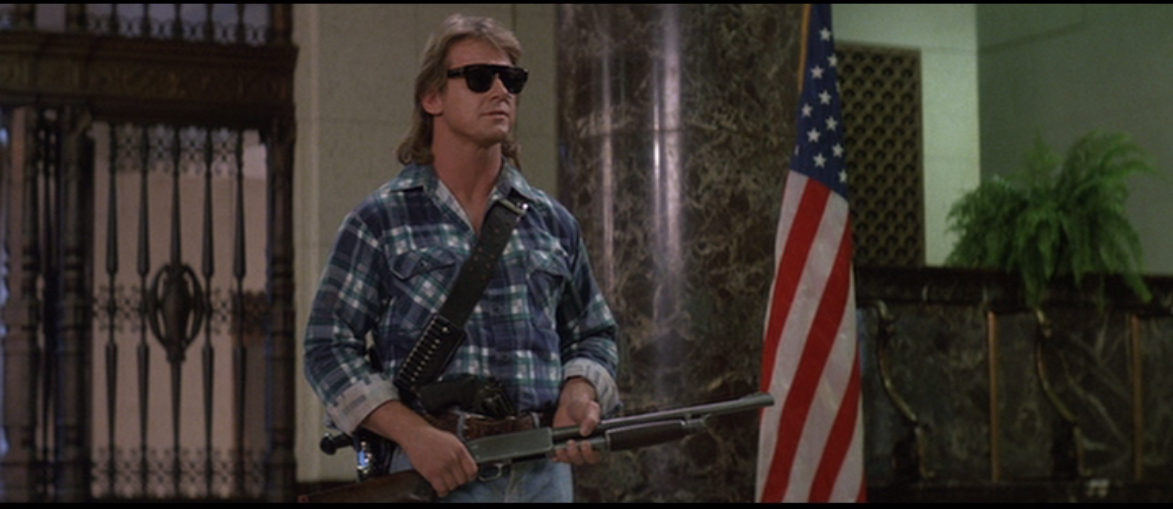
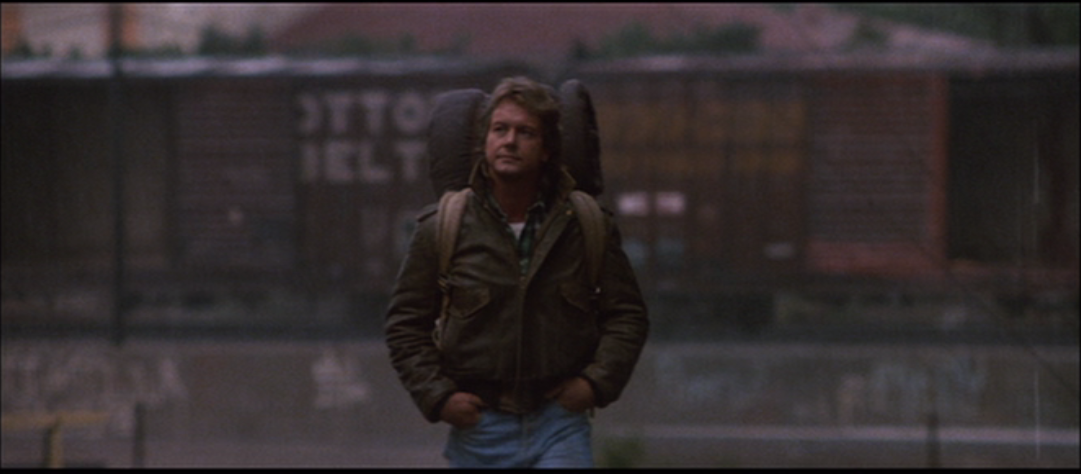
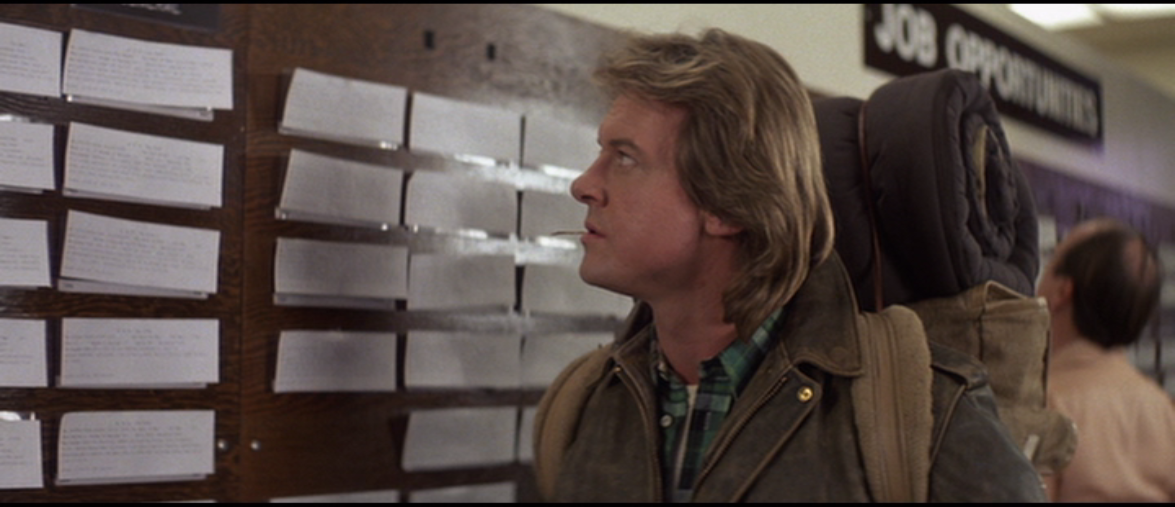
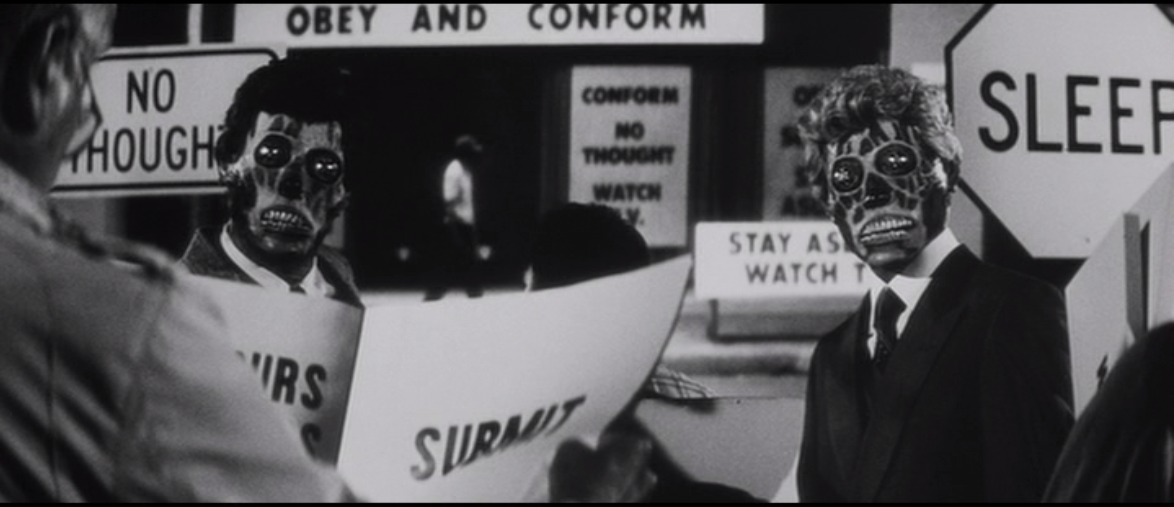
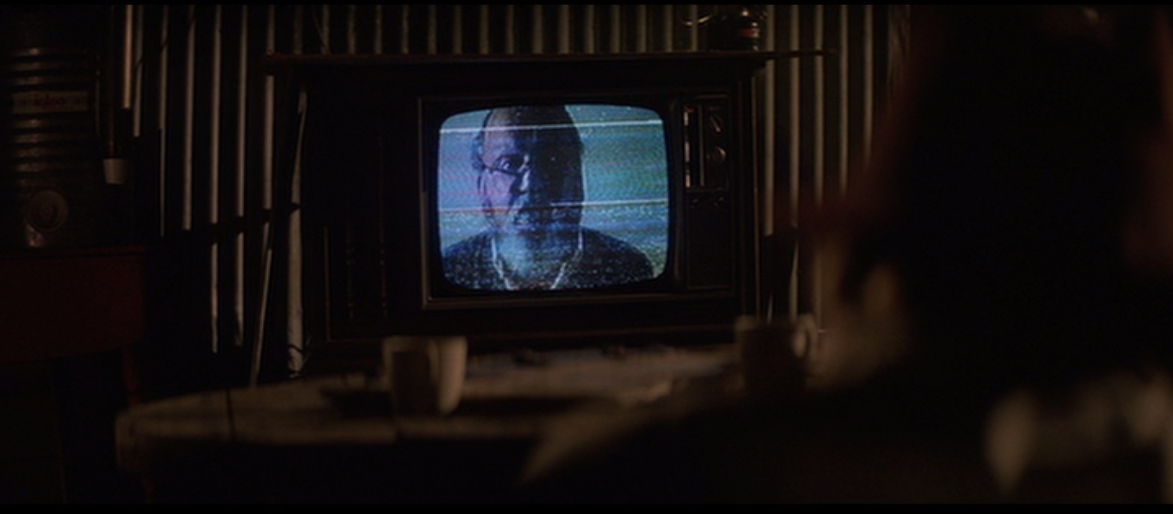
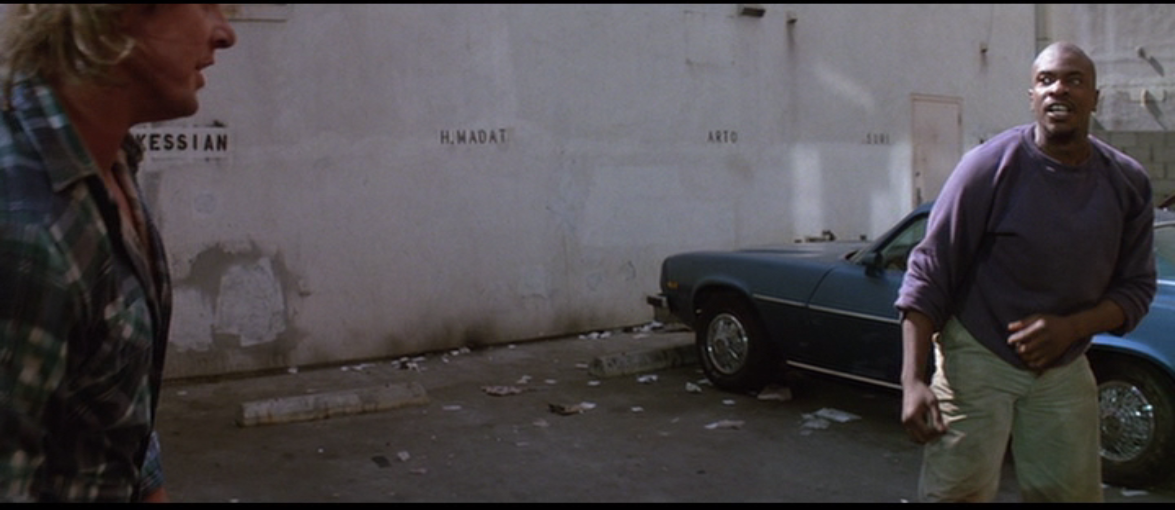
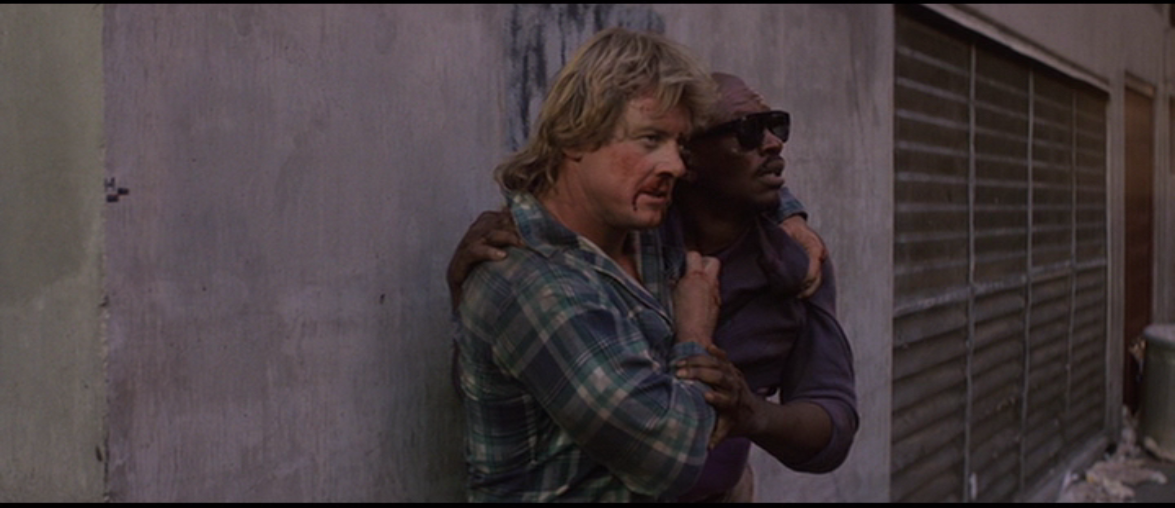
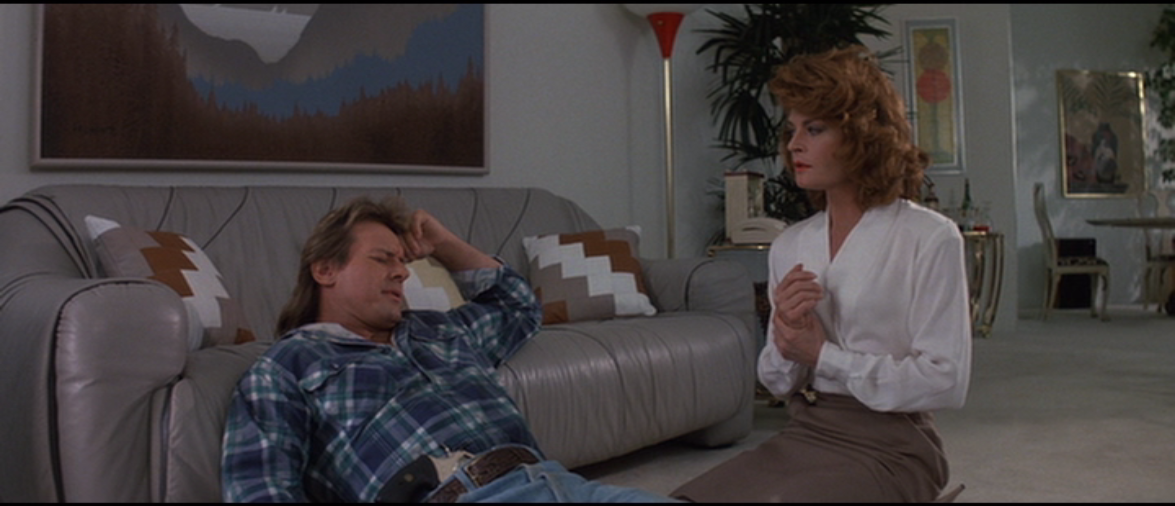
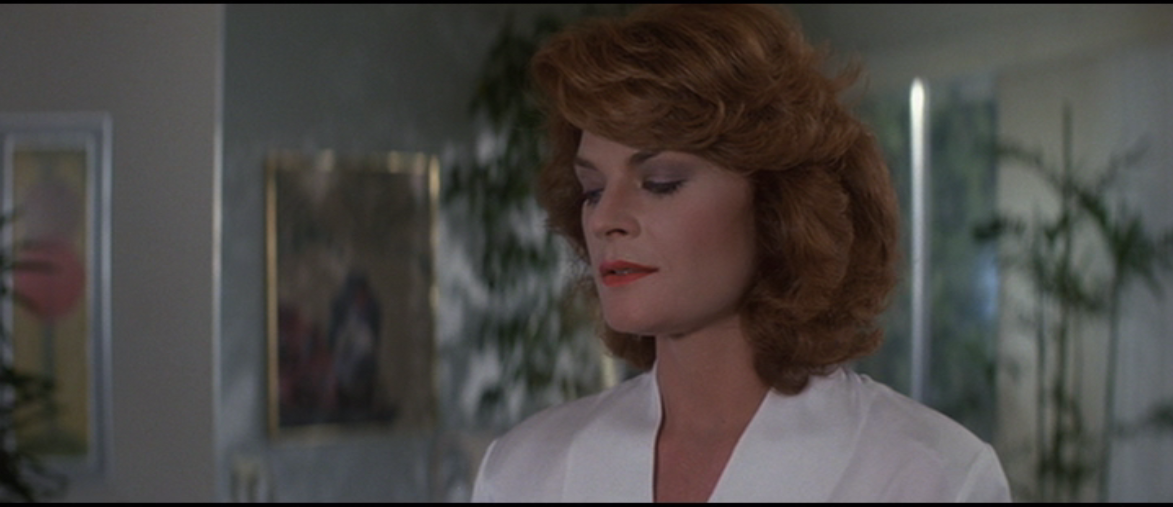
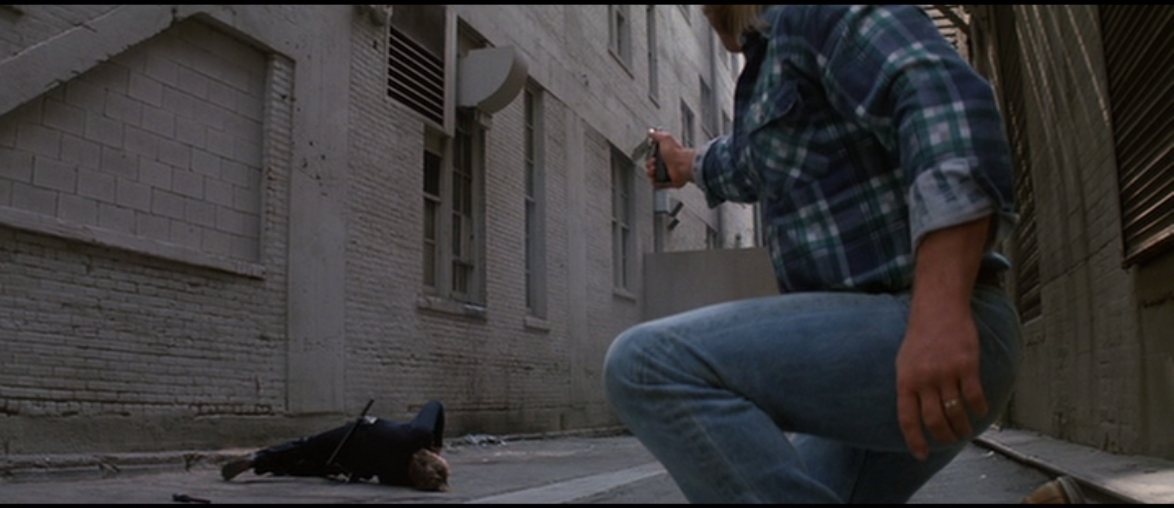
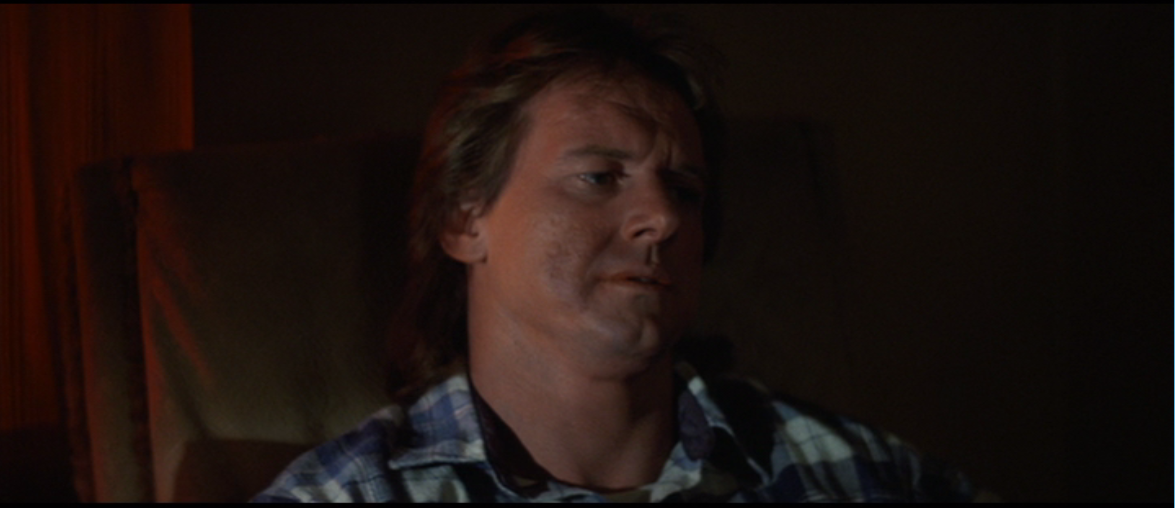
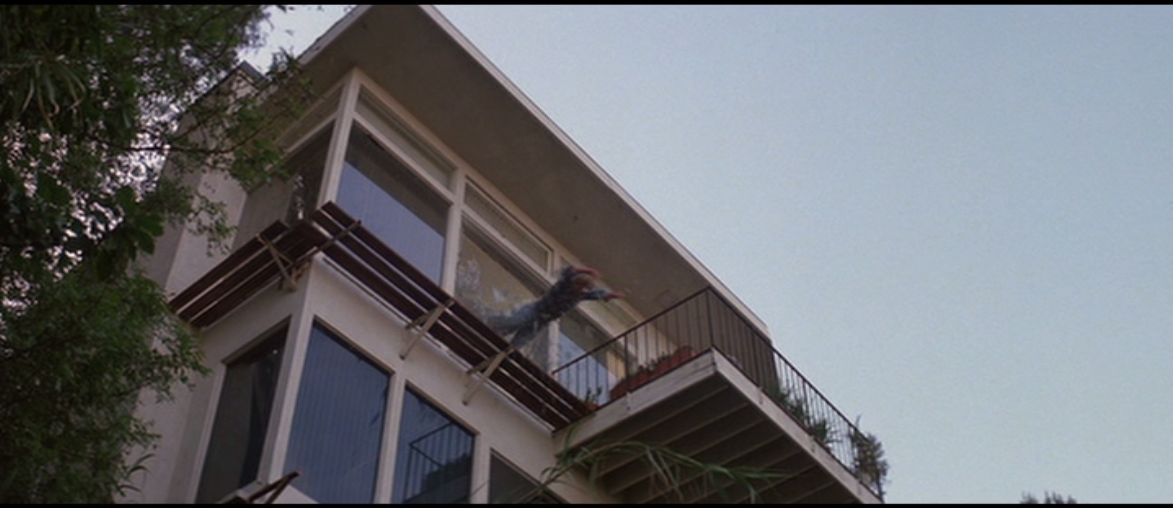
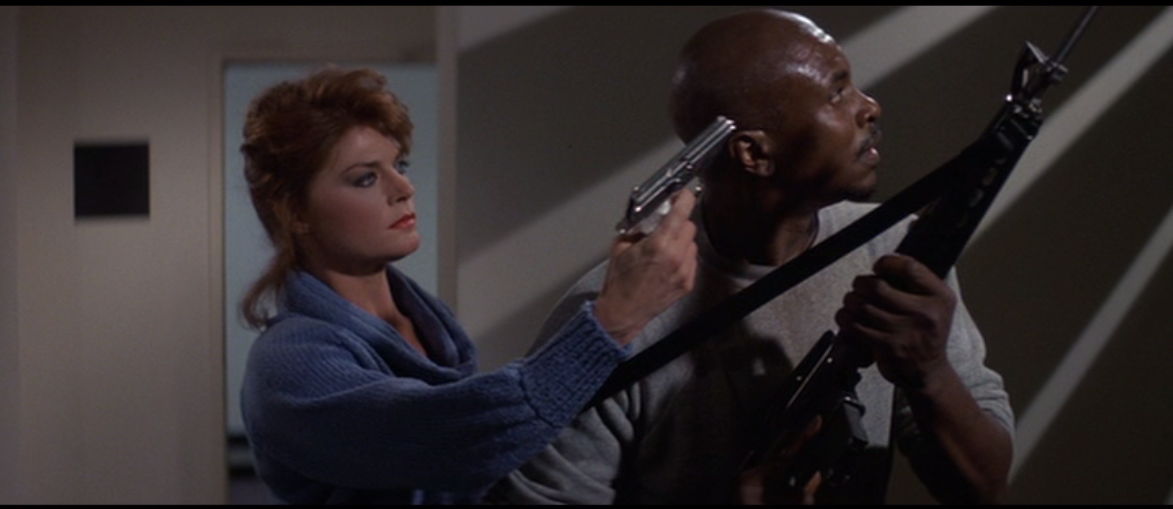
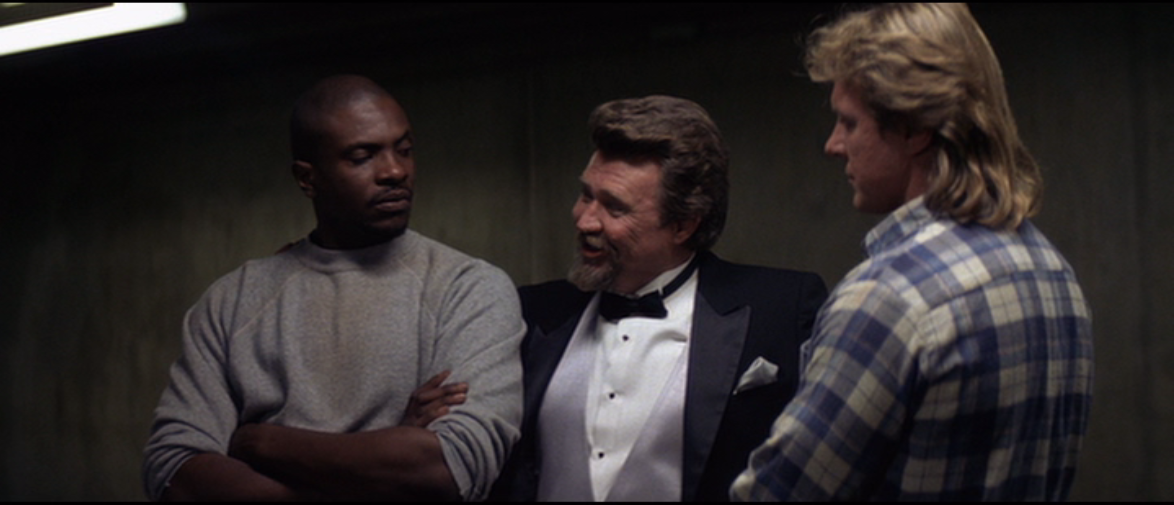
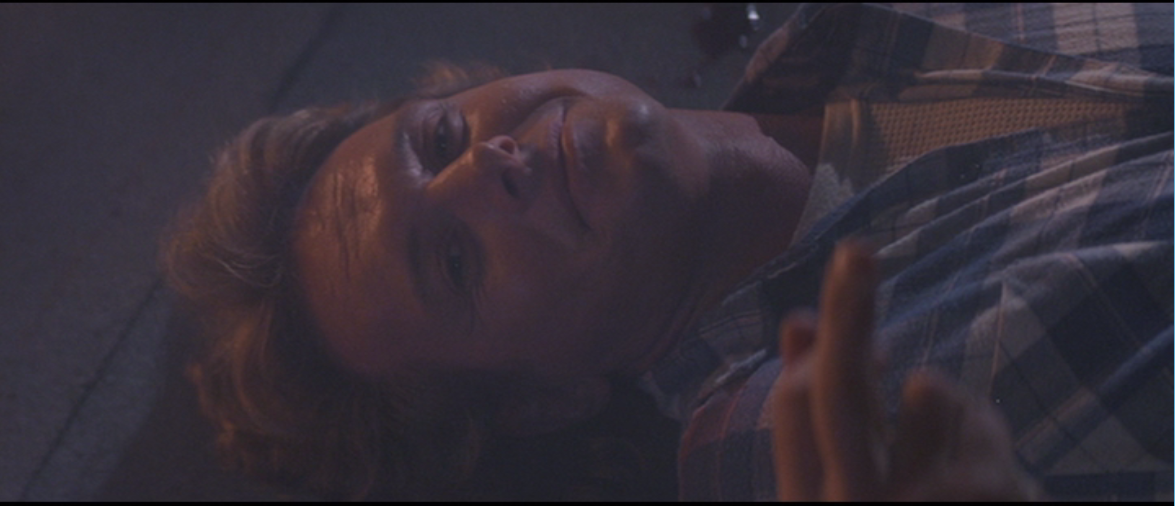
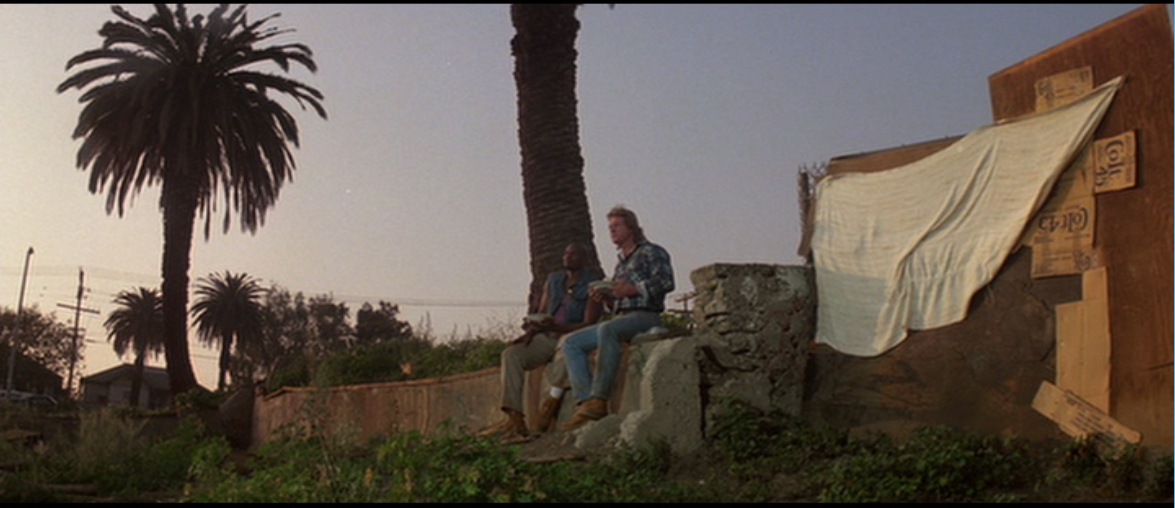
I know i’ve seen this movie as a kid but I just barely remember it. I definitely need to watch this one again. :)
Great article. Too true about the movie’s continued relevance. They Live is certainly more complex than the average ’80s action movie, even as it outwardly takes the form of one (meta!). Good point on how odd and desperate Piper’s catch phrases sound in the context of the plot.
As for Nelson’s original story, I read it a long time ago and don’t remember much about it, but the trope of “the main character/author stand-in is so perceptive/brilliant that his insights are obviously true” was such a mainstay of science fiction (and still pops up) that I’m not surprised a short story would rely on it without any ambiguity that might complicate The Author’s Message (even in the movie, the glasses are literally a device that turns subtext into text–the subtlety is all in the margins and in the character work).
By contrast, Philip K. Dick usually managed to make his points without sacrificing drama, and his story “Faith of Our Fathers” seems closer in spirit to They Live (but I don’t know if the story had any influence on or informed the film). Although set in a communist rather than capitalist dystopia, Dick’s story even makes a point of revealing the monsters on television and has a rebel group trying to awaken the population.
Anyway, very thought-provoking work as usual!
I saw the movie years ago, after midnight. It followed after something else, and the title intrigued me. It was a very pleasant surprise, especially when a friend told me later that I had randomly found a classic.
After reading your article, I rewatched it for the first time. Really enjoyable stuff. The fight scene seemed a bit too long, but there is nothing else that I could critizise. I found it especially effective that the glasses showed everything in black and white, the aliens looked enjoyably terrifying that way.
The whole idea of the upper class being not only estranged from the lower and middle class, but being actually a different species fascinates me. I especially liked the idea that climate change is intentional.
The hotel room monologue by Piper about his father, for the most part mirrors his own abusive relationship with his father, causing him to run away from home at the age of 13 and not seen his family since
I had no idea about any of this. That’s sad and incredible. Thank you for sharing.